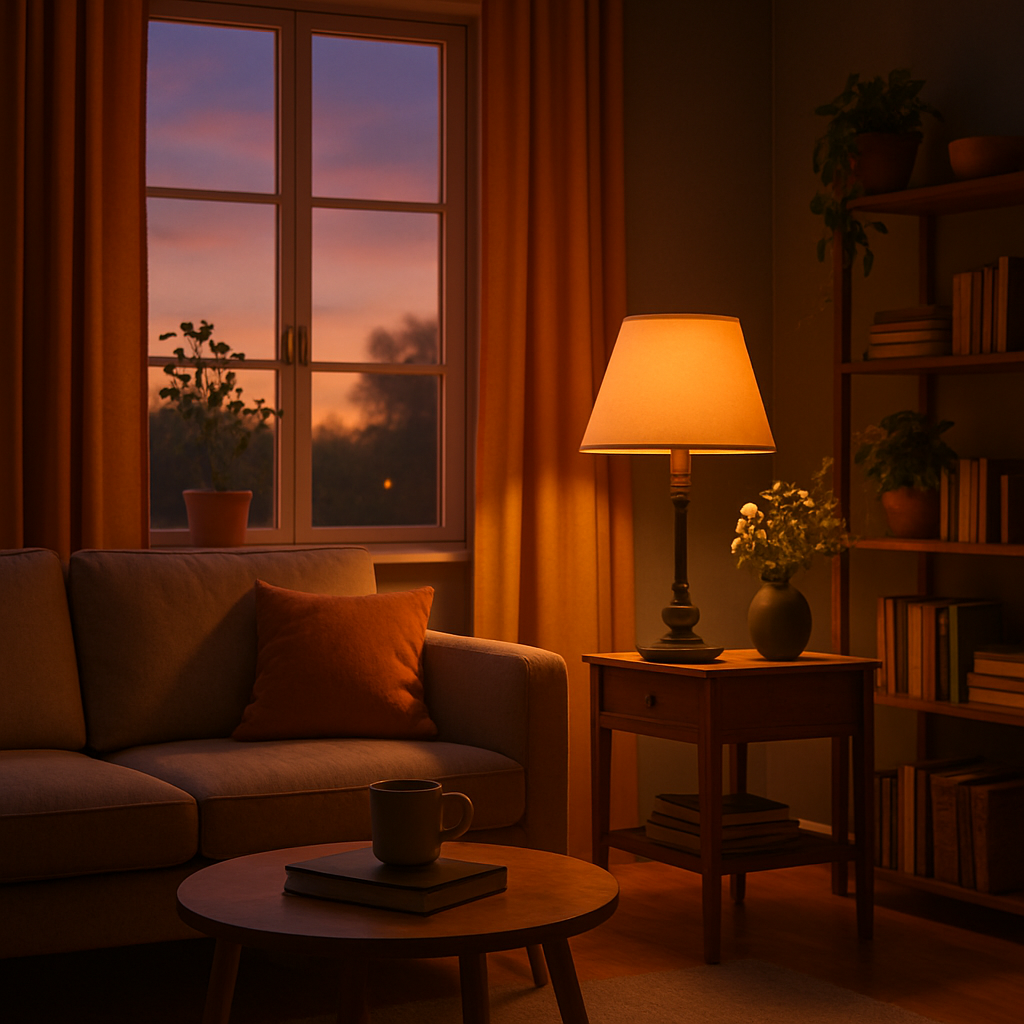In our busy world, evenings often feel like they slip away before we even realize they started. Learning how to make evenings feel longer has become a growing focus in lifestyle routines. Simple shifts in habits, spaces, and schedules can stretch those precious post-work hours into truly meaningful time. This guide explores current strategies and trends that help maximize and savor your evenings effectively.

Why Evenings Feel So Short in Modern Life
With remote work, digital distractions, and social commitments, many people experience evenings that feel rushed and fragmented.
According to a recent survey published by The New York Times (2024), 68% of working adults report feeling that their evenings “fly by” without achieving real rest or personal satisfaction.
Modern life compresses evening hours with:
- Commuting or late meetings
- Errands and chores
- Overuse of screens and passive entertainment
- Poor transitions from “work mode” to “home mode”
Understanding these patterns helps in designing strategies to reclaim that time intentionally.
Practical Tips to Make Evenings Feel Longer
1. Create a Transition Ritual After Work
Shifting your mental state from “work” to “personal time” is critical. Experts suggest having a 10-15 minute transition ritual that signals the end of work.
Examples of Transition Rituals:
- A short walk outdoors
- Changing into different clothes
- A cup of herbal tea while listening to calming music
Research by Psychology Today (2024) shows that transition rituals improve evening satisfaction by 23%, helping people feel as though their evenings start “sooner.”
2. Limit Screen Time in the First Hour
The blue light from screens tricks the brain into feeling more stressed and rushed. Avoid social media, emails, and news apps for the first hour after finishing work.
Alternative Activities:
- Light stretching or yoga
- Cooking a simple meal
- Talking with family or friends
Studies from Healthline (2024) highlight that reducing evening screen exposure not only makes time feel slower but also enhances sleep quality.
3. Plan a “First Evening Activity”
Rather than drifting aimlessly after work, plan one small, positive task you look forward to doing right after your transition ritual.
Examples:
- Reading a few chapters of a novel
- Working on a hobby for 20-30 minutes
- Watering plants and adjusting home lighting for ambiance
Structured but relaxed evening beginnings prevent wasted “dead time” where minutes disappear unnoticed.
Designing Your Space to Stretch Time
1. Lighting Matters
Soft, warm lighting can psychologically slow down your sense of time passing. Dimmer switches, string lights, and table lamps work better than harsh overhead bulbs.
According to Houzz (2024), homes that use layered, ambient lighting report a 30% increase in perceived relaxation compared to those using standard ceiling lights.
2. Tactile Comfort
Surround yourself with textures that invite lingering—soft throws, plush rugs, comfortable seating. Comfort encourages staying present and reduces the tendency to rush to the next task.
3. Declutter Visual Noise
Messy, chaotic environments subconsciously create feelings of urgency. Tidying key living spaces (like the living room and bedroom) can immediately enhance your sense of calm and lengthen your subjective experience of time.
Build Micro-Routines for a Longer Evening Feeling
Instead of long to-do lists, use short, themed micro-routines:
- 10-Minute Reset: Light cleanup of your main living area.
- 15-Minute Creativity Window: Sketching, journaling, doodling.
- 20-Minute Mindful Movement: Gentle stretching, tai chi, or leisurely walks.
Breaking the evening into short, intentional segments reduces the feeling of one big “blur” and extends your sense of richness and fulfillment.
How Society is Embracing Longer Evenings
The trend toward valuing slower evenings is gaining traction, particularly among millennials and Gen Z.
Lifestyle brands, wellness influencers, and even tech companies are promoting “slow evening” concepts:
- Apple’s Focus Mode: Encourages intentional use of technology in the evening hours.
- Mindful Living Communities: Urban housing projects now offer communal gardens, book clubs, and quiet zones to promote evening engagement.
- Work-Life Balance Campaigns: Many corporations introduce policies limiting work communications after hours.
These societal shifts highlight a growing collective understanding: longer, richer evenings contribute to better mental health and deeper personal fulfillment.
Common Mistakes to Avoid
| Mistake | Better Approach |
|---|---|
| Binge-Watching TV All Evening | Replace with one curated, intentional show or movie |
| Working on “One More Thing” Late | Clearly define your daily work endpoint |
| Eating Heavy Late Dinners | Opt for lighter, earlier meals |
Intentionality—not rigidity—is the key.
Final Thoughts
Learning how to make evenings feel longer isn’t about cramming more activities into them. It’s about reshaping your rhythm: creating natural transitions, choosing activities mindfully, adjusting your environment, and following emerging wellness trends.
Small, smart adjustments can transform your evenings from rushed to restful, letting you truly reclaim this vital time for yourself.
References
- The New York Times. (2024). Why Your Evenings Feel Shorter Than Ever—and What to Do About It. Available at: www.nytimes.com.
- Psychology Today. (2024). The Power of Transition Rituals. Available at: www.psychologytoday.com.
- Healthline. (2024). Screen Time Reduction and Sleep Quality: The New Findings. Available at: www.healthline.com.
- Houzz. (2024). Lighting Design Trends to Make Your Home Feel Calm and Cozy. Available at: www.houzz.com.









